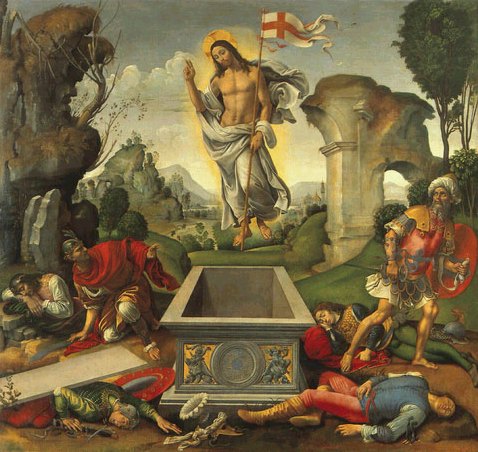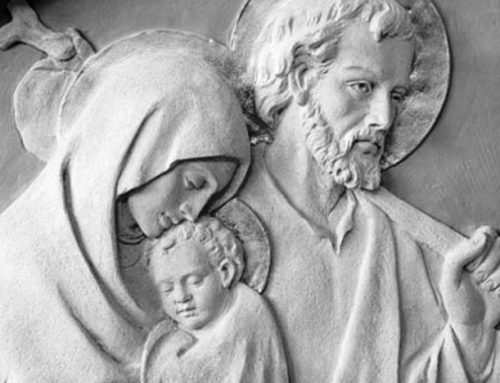Christianity is not a comfortable faith, but it has the hope of the Resurrection, Benedict XVI says.
Benedict began his address citing a passage from Paul’s First Letter to the Corinthians: “And if Christ has not been raised, then empty is our preaching; empty, too, your faith. … You are still in your sins.”
“With these heavy words […] St. Paul makes clear how decisive is the importance that he attributes to the resurrection of Jesus,” the Pontiff said. “In this event, in fact, is the solution to the problem that the drama of the cross implies. On its own, the cross could not explain Christian faith; on the contrary, it would be a tragedy, a sign of the absurdity of being.[…]
“Here is the central key to Pauline Christology: Everything revolves around this gravitational center point. The whole teaching of the Apostle Paul departs from and always arrives at the mystery of the One whom the Father has risen from the dead.”
Benedict XVI said that Paul’s preaching of the Resurrection was always linked to the tradition of the first Christian communities.
“Here one can truly see the importance of the tradition that preceded the Apostle and that he, with great respect and attention, wanted in turn to convey,” he said. “The text on the Resurrection, contained in Chapter 15:1-11 of the First Letter to the Corinthians, emphasizes well the nexus between ‘receive’ and ‘transmit.’
“St. Paul attributes great importance to the literal formulation of tradition; the end of the fragment we are examining highlights: ‘Whether it be I or they, so we preach and so you believed,’ thus spotlighting the unity of the kerygma, of the proclamation for all believers and for all those who would announce the resurrection of Christ.”
Thus, the originality of Paul’s Christology “is never in detriment to fidelity to tradition,” the Pope affirmed. “And in this way, Paul offers a model for all times of how to do theology and how to preach. The theologian and the preacher do not create new visions of the world and of life, but rather are at the service of the truth transmitted, at the service of the real fact of Christ, of the cross, of the resurrection. Their duty is to help to understand today, behind the ancient words, the reality of ‘God with us,’ and therefore, the reality of true life.”
The Pope Emeritus said that Paul’s emphasis on the Resurrection and his proclamation of that fundamental Christian truth has “important consequences for our life of faith.”
He explained: “We are called to participate from the depths of our being in the whole of the event of the death and resurrection of Christ. The Apostle says: We ‘have died with Christ’ and we believe ‘that we shall also live with him. We know that Christ, raised from the dead, dies no more; death no longer has power over him.’
“This translates into sharing the sufferings of Christ, as a prelude to this full configuration with him through the resurrection, which we gaze upon with hope.”
Paul also shared in sufferings with the hope of the resurrection, the Pontiff noted. “The theology of the cross is not a theory — it is a reality of Christian life. To live in faith in Jesus Christ, to live truth and love implies renunciations every day; it implies sufferings. Christianity is not a path of comfort; it is rather a demanding ascent, but enlightened with the light of Christ and with the great hope that is born from him.”
In fact, he continued, citing St. Augustine “Christians are not spared suffering; on the contrary, they get a little extra.”
But, Benedict affirmed, it is “only in this way, experiencing suffering, [that] we experience life in its depth, in its beauty, in the great hope elicited by Christ, crucified and risen.”








Leave A Comment
You must be logged in to post a comment.